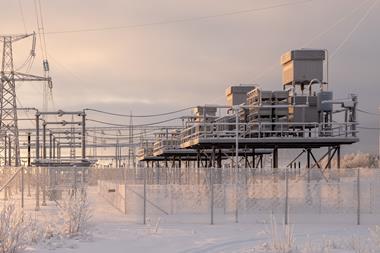The Global Real Estate Sustainability Benchmark (GRESB)’s first assessment of infrastructure funds found that performance results are overall strong at fund level, with room for improvement in the performance results of the underlying assets.
GRESB analysed 185 infrastructure funds and assets from 53 countries across six continents.
Emke Bus, managing director of ESG and infrastructure at GRESB, said: “With the high number of funds and assets participating in the inaugural GRESB Infrastructure assessment, it is clear the interest in sustainable infrastructure is high.
“The development and operation of infrastructure projects will play an important role in achieving the ambitious carbon-reduction goals set out by the COP-21 agreement in Paris,” said Bus, who will address delegates at IPE Real Estate’s Real Assets & Infrastructure Conference in London on Thursday.
A total of 185 infrastructure entities, including 51 funds and 134 assets, reported to the 2016 assessment.
The infrastructure funds and assets in the database carry out a wide variety of business activities, such as the operation of ports, airports, toll roads, conventional and renewable energy, and social infrastructure.
GRESB’s assessment carried out a fund assessment and an asset assessment.
The fund assessment focused on management and investment processes, addressing foundational ESG plans and policies, leadership and accountability, engagement strategies, communications processes and other factors.
Fund performance results in 2016 were overall strong, with an average fund score of 54 (out of 100).
However, there is room for improvement when it comes to the performance results of the underlying assets.
The asset assessment addresses asset-level plans and policies, implementation actions and operational performance, providing the information needed to understand efforts to maximise beneficial outputs, while minimising social and environmental impacts.
The average GRESB Asset score for all participating assets is 28.
Bus said the involvement and engagement of institutional investors – such as banks, insurance companies, pension funds and sovereign wealth funds – in infrastructure investments that are low carbon, climate resilient and socially inclusive is particularly important.
A high response rate and the data show that ESG is increasingly embedded in infrastructure investments, with more than 90% of participating funds having ESG policies and including such considerations in their investment processes.
However, the measuring and reporting of the environmental performance of infrastructure assets, including carbon emissions, energy and water consumption, and waste and air pollutant emissions, are not yet common practice in the infrastructure investment industry.
Patrick Kanters, managing director global real estate and infrastructure at APG Asset Management, said: “Ensuring infrastructure assets are managed sustainably is critical to their successful operation and ability to generate stable long-term cash flows.
“GRESB Infrastructure is an important step towards more coordination and alignment among the infrastructure investment community, which is reflected in the high number of participants in the first assessment.”
IPE Real Estate’s Real Assets & Infrastructure conference takes place in London this week.











